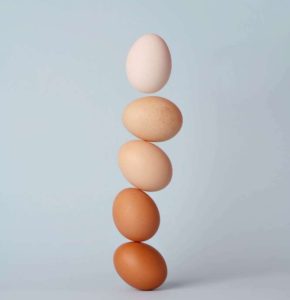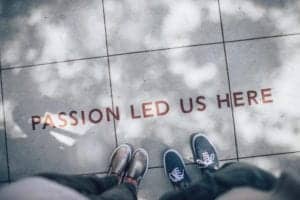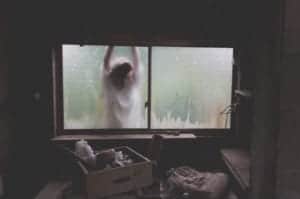A PERSONAL LOOK AT RACISM
Every morning I have a practice that includes, among other things, writing an affirmation or intention for my life, or perhaps just for the day. This morning I wrote, “I will not avoid deep inner work in my soul.”
And then I immediately got up to play ball with the dog, vacuum the floor, and answer a few emails. All of these things needed to happen. But not during the early morning hour that I set aside for meditation and prayer. I know resistance when I see it!
Deep inner work calls to me like a siren, and it feels like I am heading straight for shoals ahead that I cannot see. Such is the nature of inner work.
I AM A RACIST

My racism and complacency about systemic inequality gnaws at my gut and prompts me to release my silence.
Twenty-five years ago, I had my first insight into the fact that I am a racist, not by intention, but by birth.
This insight was an academic perspective from which I confess I haven’t grown a whole lot. (Photo by Markus-Spiske on Unsplash)
I have done little to dismantle societal structures that are inherently unequal except to express sympathy. And that, not very publicly. I hid behind my privilege, and my soul remained unexamined until the recent violence in our nation.
HIDING BEHIND WHITE PRIVILEGE
I realize today that expressing sympathy without action is a common response of white privilege. It is easy to draw a curtain of good intentions around the inertia, so my one tiny act is to lay aside my shame and write.
I was conditioned by my culture here in northern New England to accept a white world and ‘be kind’ to people from other cultures, or with different skin color. I hid behind my ‘kindness’ and thought that meant I was not racist. That it was enough.
As most (white) Americans in my generation, I was taught that privilege comes ‘The old fashioned way. You earn it.” Yes, I acknowledged my privilege…and then took credit for it any means I could.

Because I live in a geographic area where there is more diversity in the eggs I eat than in my neighbors, I hid behind the myth that racial inequality isn’t my problem. It is a problem of large urban areas, so I can focus on things more important to rural living.
I have a litany of other excuses, though. Too old. Too busy. I can’t solve all the world’s problems. I don’t feel ‘called’ to be an activist.
(Photo by Jiangxulei on Unsplash)
WHAT DOES IT MEAN TO BE ‘CALLED’?

(Photo by Ian-Schneider on Unsplash)
This last excuse, that of calling, seems to be defined by a lot of my wants and desires.
Frederick Buechner offers this definition of calling: “Vocation is where your greatest passion meets the world’s greatest needs.”
I have written elsewhere that my passion is to write, to use my voice to bring healing, to be a ‘channel of grace,’ and to leave a legacy.
I meet a hard reality. A reality that demands that I go more in-depth. That I do the hard work of dismantling structures that justify and further my white privilege. That I take a hard look at my role in maintaining systemic racism.
Why am I writing this in a post now when I am only beginning this deep work?
I am exploring publicly my process of what deep inner work looks like, hoping that others may find the courage to look behind their curtains of shame.
WHAT WE HIDE AND WHY

(Photo by Priscilla-du-Preez on Unsplash)
Hiding problems in the darkness is a human response to icky feelings, scary ideas, and guilt.
Many times we turn to professional therapy to find out why we are depressed or dysfunctional or bored.
I am thankful for therapy and encourage anyone struggling with intractable issues or negative feelings, to engage whatever help is needed.
On the other hand, we are good at hiding things that make us squirm, or that trigger unwanted tears.
Some of us bury secrets inherited from generations past as well as desires that seem inappropriate.
We may even bury gold behind the walls of an old house to avoid taxes. We do this in the name of being accepted. Being loved. Or avoiding the government.
Have you ever hidden a Christmas present, waiting for the holiday and not find it for three more years?
Or perhaps you hid a private journal, and you are still looking for it? Have you discovered a pile of letters you had forgotten you hid 30 years ago? How do we find these things if not by accident?
BEGINNING THE HUNT
We begin by opening closed spaces like closets and trunks, or a closed heart, cleaning out a lot of junk piled up along the way.
It is hard, dusty, work. We may work up a sweat. Or get easily distracted.
We may decide it is not all that important and give up. We have no memory of gold hidden under the floorboard 30 years ago.
Or we may flee in fear that whatever is hidden was buried in shame, and we aren’t about to revisit that!
Doing inner work around things like why we feel unworthy, how our life became unbalanced, or how we experience white privilege is scary.
Once we remove the curtain to peer into the darkness of our soul, where we neatly stored things for ‘someday,’ we must ask, “what now?”
NOW WHAT?
Now that I have found my old diaries, do I read them? Burn them? Publish them?
Now that I have found the gift certificate I was going to give as a Christmas present to someone who is no longer living, do I return it? Spend it? Trash it?
When I discover the gold in the wall, do I invest it? Spend it? Donate it?
Always there is an action to take. The cost of doing inner work, of uncovering things in our soul, is action. It isn’t a question of no action. It is a question of what action.
 Like an underground forest fire whose spark has always been part of our nation, public outcry over racial inequality erupted during the Civil War and was driven underground with a lot of blood.
Like an underground forest fire whose spark has always been part of our nation, public outcry over racial inequality erupted during the Civil War and was driven underground with a lot of blood.
Its fire blazed again in the 1950s. Integration laws and affirmative action pushed the flames underground where they smoldered for another 60 years with occasional hot spots here and there.
Until June of 2020. Pressures from many areas including a deadly virus, economic insecurity, and a divided nation created the perfect environment for this fire to break open with all its fury. (Photo by Alfred-Kenneally on Unsplash)
And of course, I tell myself, I had little to do with this current outbreak. I still live safely behind my walls of privilege. Except there is a protest going on in my spirit. I can’t ignore it.
What have I hidden there? What will it take to find it?
TAKING TINY STEPS
To these ends, I will share what I am doing.
I signed up for a 4-week course with Patti Digh. She is offering this class on Whiteness and Social Justice, which is structured around the book “How to be An Antiracist” by Ibram X. Kendi. All books about racism are so popular that print versions are not available, but you may find it digitally. Apparently I am not the only one who is feeling called to action. Even if that action is only to become better educated.
If there are books you have read and would recommend, please share in the comments below.
This inner growth work isn’t easy. To dig around in the dark is scary, difficult work. I am taking tiny actions to move out of a mindset of privileged entitlement in my life to a mindset of “I need to learn” and be changed.
Will you join me?


Ellen
Thanks for sharing. I feel called to do the same! Off to find “How to be an Antiracist”
Ardis Mayo
We are never too old to be learning. I am just aghast to realize how I protected myself from learning for so long. A whole new language is before me.
Mary Ann Perry
Having many thoughts as you. I have a book on back order of course. Don’t have my notes right here. So don’t remember title. Very similar.
Ardis Mayo
Mary Ann, you are more patient than I. That is why I am so grateful for digital books. I suspect these titles will be slow in coming. Would love to chat with you sometime about what you are reading.
Dara Perfit
I have been thinking about some similar things and reviewing my childhood growing up in New York City. As a city child you learned how to navigate space, people, transportation in a way to keep safe and not be noticed in a negative way. Underneath all of this was a fear of the stranger, the different one. Color entered into it somewhat but also the homeless or the drunk. You learned not to make eye contact with a person approaching you.
I do remember thinking that although I too am a member of a minority, I was grateful that I was white. Sad to think of that as a child.
I was very aware of racism as my mother taught in Harlem for many years and tried to give the students she taught all the things that would help them move along the way to their best ability. She set strict standards about behavior in her classroom which was much appreciated by the parents. I believe she became known and respected by the black community that fed into the school.
But even being white, I did face prejudice such as a child telling me she couldn’t play with me because I was Jewish and more prejudice in college. It’s only now that I am older that I have learned how to confront prejudice and try to teach from it. Not easy.
I hope the demonstrations do result (as they seem to be doing) in political action and cultural change. This never could have happened years ago. I am so impressed with the young white protesters taking part.
Ardis Mayo
Yes, Dara, my hope is also in the young…and the question I ask myself is how can I support the younger generation until I confront my own blind spots?
Bonnie Keast
That egg picture is telling for the realities of racial diversity here in much of New England. I also am not a protestor nor a marcher. During these past several weeks, I have been reading and watching zoom panels and recognizing more fully how much my skin color has impacted my opportunities and daily living. There are now more articles written by POC available in print news and I am paying closer attention.
I also admit to being racist as I have not much questioned the structures that protect my whiteness. As one writer put forth (paraphrase: Whites have to do more that join book clubs to discuss books on race.). Action is required. For me, besides the reading, thinking, praying, I am devoting some of my monthly giving to black causes. Frankly, this had never occurred to me before which further shows how out of touch I have been.
Ardis Mayo
Bonnie, so much has never occurred to either of us. This is the problem. And it is the tiny acts that add up.
Patrick Passero
My feelings are about like you describe in a way. I have many friend of color, Ethnic Groups, persuasion, etc. and I love them all. But once in a while I get a little riled at some things that go on in the news and it seem my Father’s and old friends hates or whatever they are called, squeeze through in me. All I heard when I was young by almost everyone in N.E. till the 50’s was the words of hate, like N word, F word for gay, and all the other not so great slang and hate words for the ethnic groups. I did not think much about this till I got Married and got a woman who let me know how wrong I was. I started healing by talking, asking and being a pain in the ass sometimes to learn what it was that I hated. It turned out I didn’t hate but got to like these people better than some people I grew up with and hung with. It is still the same down where I was born in MA. I can’t have a decent conversation, because I am always on guard not to offend these people, but maybe I should. I feel so much like a phony on the wrong end of the conversation and should say more.
Love your article!
Ardis Mayo
Pat, understanding our complicity in something as big as systemic racism is a very long process. I’m so glad you are on the journey. We will walk it one tiny step at a time.
Rick Cross
Good start, Ardis! We flounder. I am inspired to write and share my own personal story about encountering race, “leaving the farm” where I grew up here in all- white rural Maine. I hope we can have a time to hear each other’s stories. Just a small beginning.
Ardis Mayo
Rick, all beginnings are small, like newborns. I had hoped I could jump on where I left off and voila! suddenly be the perfect antiracist. Yes, let’s have a conversation.
Terrie
The first time someone pointed out to me that I was privileged because I am white, I almost laughed because I was a poor college student struggling to stay alive. Twenty years later, I am beginning to understand. All the protests are making it easier to do so. I am still poor but even in that, can still see how privileged I am. I am grateful for what is happening and pray it changes us for the better. I love your humble article Ardis,.
Ardis Mayo
Oh how I can relate! I thought I understood racism because I could buy band-aids in my skin color. Where have I been all my life?! May I be forgiven and pass on the mercy.